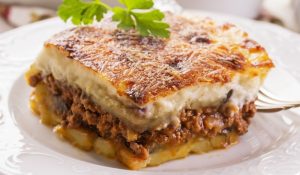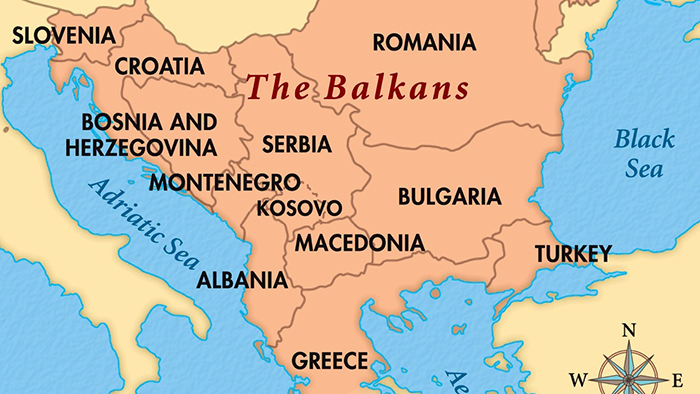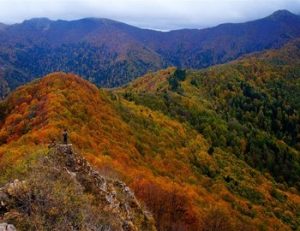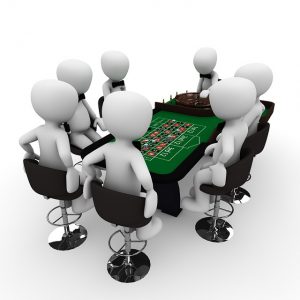One of the biggest misconceptions about the Balkans is that they are this place of like-minded people, who look the same, speak the same language and have the same religious beliefs. In reality, this couldn’t be further from the truth.
The abstract concept of the Balkans encompasses countries, which though having shared history, have very different opinions about it. Apart from history, the Balkan peoples disagree on many other topics mostly because they do share the characteristic of being passionate. No matter what they’re discussing, they are passionate about it.
 They pride on their ethnic cuisine and they’d probably think I’m picking a quarrel if they heard me say that they have a dish that’s common for them all but, truth be told, they do – it’s called moussaka. Well, I can’t guarantee all Balkan states have it but most of them surely have their own version of moussaka.
They pride on their ethnic cuisine and they’d probably think I’m picking a quarrel if they heard me say that they have a dish that’s common for them all but, truth be told, they do – it’s called moussaka. Well, I can’t guarantee all Balkan states have it but most of them surely have their own version of moussaka.
Originally coming from Greece, the mousakás (μουσακάς) is a traditional dish which is most notable for being layered. In Greece, the three layers of what is going to become moussaka are cooked separately and only combined for the final stage of cooking – baking. But as much as layers are important, their ingredients matter, too.
In Greece, they’d serve you a dish of sautéed aubergines and tomatoes and usually minced meat, topped with Béchamel sauce. But in other Balkan countries, if you ordered moussaka expecting that you’d be in for surprise. Though the dish may look very similar, it’d be likely made without aubergines. Instead of the key-ingredient of the Greek moussaka, some Balkan nations use potatoes. They also replace the Béchamel sauce with plain white yogurt with beaten eggs. They often sprinkle grated cheese on top and garnish the dish with flat-leaf parsley. To try the potato-based moussaka, visit Albania, Bulgaria, Bosnia, Croatia, Macedonia, Romania, Serbia or Slovenia. If you’d like to try moussaka with onions, green peppers, carrots or courgettes, order moussaka in Turkey.
I’ll never forget the moussaka Kate and I ate on one of our trips to the Black Sea coast. We stopped at a village in the foot of the Balkan Mountains and had the typical Bulgarian moussaka with “tarator” – a cold soup made from cucumbers, yogurt, dill, and walnuts. Check out this lovely video recipe for the Bulgarian variant of moussaka.
Many people think of moussaka as a Greek dish but there’s a very similar dish in Egypt and in the Middle East. Anyway, let the Greeks and everybody else in the Balkans enjoy this awesome and nutritious meal with ouzo and Greek salad, also known as Shopska salad in Bulgaria, Serbian salad in Serbia or Çoban salatası (Shepherd’s salad) in Turkey.
Talking of the Greeks, did you know that the ancients were very keen on gambling? They supposedly used to bet on major sporting events, including the Olympics. There were gambling houses in Ancient Greece and they even had a goddess of fortune and prosperity – Tyche, the daughter of Aphrodite and Zeus.

 If you don’t know someone and are quick to label them negatively, are they to blame? Certainly not. Actually, if there is any fault in this situation, it should most probably lie with the one that’s reluctant to come to know the other, yet quick to judge them. If all this sounds like a bunch of gibberish to you, let me give you an example.
If you don’t know someone and are quick to label them negatively, are they to blame? Certainly not. Actually, if there is any fault in this situation, it should most probably lie with the one that’s reluctant to come to know the other, yet quick to judge them. If all this sounds like a bunch of gibberish to you, let me give you an example. Though the Balkans are more of a cultural and political concept, they cover a physical territory on the Balkan peninsula and as such can be analyzed from a geographical perspective. The Balkans are a diverse mix of mountains and forests, rivers and lakes, wide valleys and hilly grasslands, flat or rolling countryside. Actually, did you know that the name Balkans comes from the Balkan Mountains, which are a 560 km mountain range that starts in Serbia and sprawls towards the Bulgarian Black Sea coast?
Though the Balkans are more of a cultural and political concept, they cover a physical territory on the Balkan peninsula and as such can be analyzed from a geographical perspective. The Balkans are a diverse mix of mountains and forests, rivers and lakes, wide valleys and hilly grasslands, flat or rolling countryside. Actually, did you know that the name Balkans comes from the Balkan Mountains, which are a 560 km mountain range that starts in Serbia and sprawls towards the Bulgarian Black Sea coast? Hi, I’m Paul. I’m your real-life Englishman in New York. Except that it’s not New York but the Balkans. You’ve probably heard the name but can you honestly say you know what it stands for? Mostly imagined as a place of political conflict, the Balkans are some kind of a mystery to many Brits.
Hi, I’m Paul. I’m your real-life Englishman in New York. Except that it’s not New York but the Balkans. You’ve probably heard the name but can you honestly say you know what it stands for? Mostly imagined as a place of political conflict, the Balkans are some kind of a mystery to many Brits.